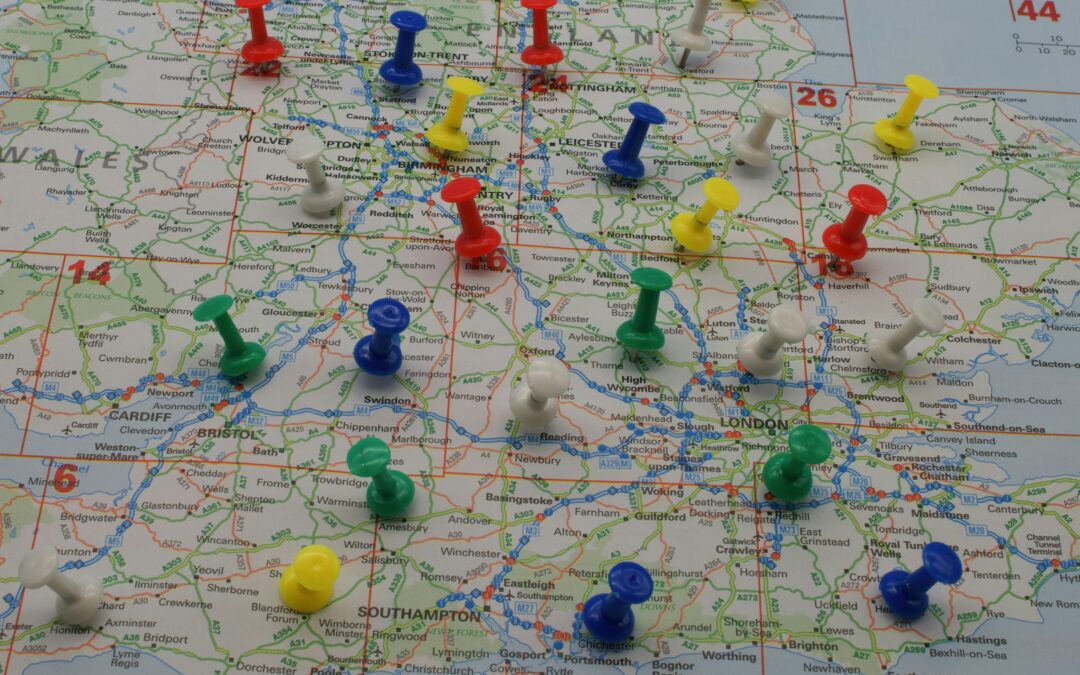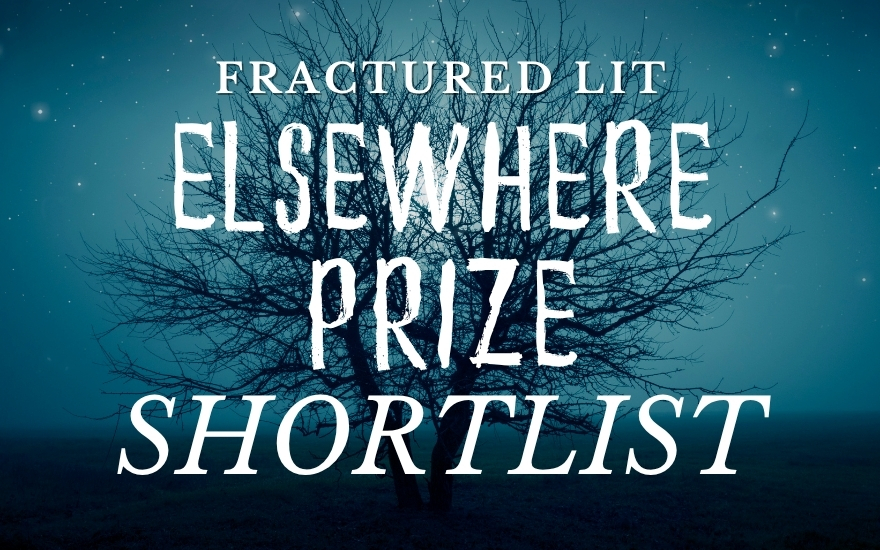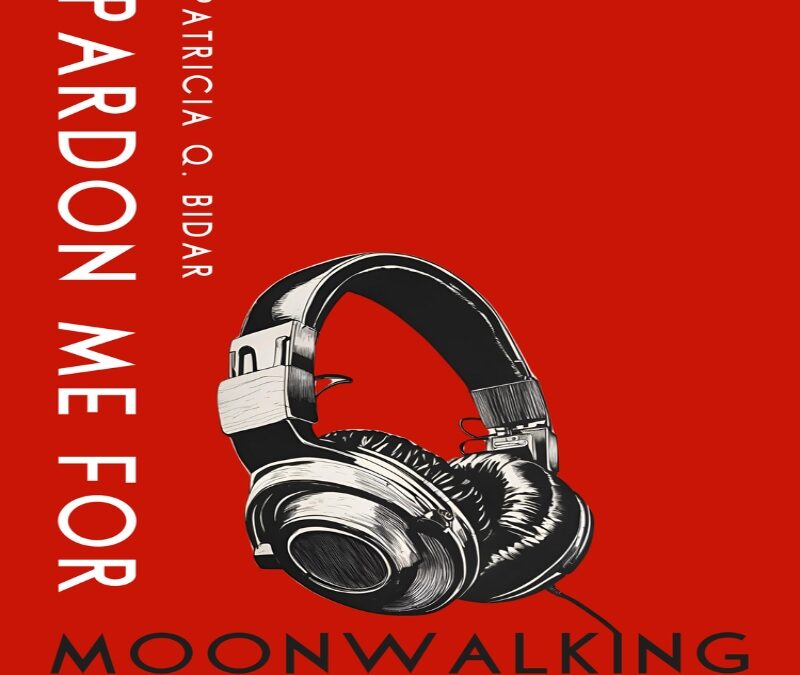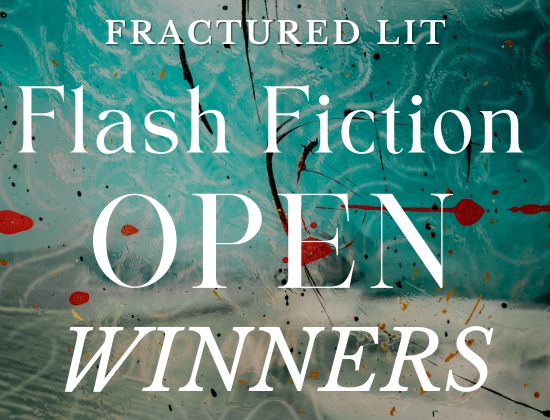
by Gary Fincke | Jan 12, 2026 | flash fiction
On our street, the fathers who hunted had sons who hunted. Their rifles and shotguns, the working ones, were never visible, but each living room displayed a weapon from their father’s or grandfather’s past, some heirloom hung over the mantle like a flag that declared what sort of compact country you had entered.
Although he loved the outdoors, my father never hunted, and so I stayed silent while neighbor boys told tales in the language of blinds and points and net weight and taxidermy.
My uncle hunted, but had no sons. When I was eleven, he decided to teach me. An hour, that lesson lasted, while my father sat inside his brother’s house like a wife waiting for war news. Because I was nearsighted and never wore my glasses except to read a quiz written on a sixth-grade blackboard, I proved to be a terrible student. “A start,” was all that my uncle said, and never brought guns up again. My father, in the car, did not ask what I had hit or whether I intended, now, to hunt. What he said was, “If he had a boy of his own, he’d be different.”
He and I and that uncle lived apart for decades until the afternoon my father, who, by then, had outlived my mother by seven years, said, “He has a little cancer in his bones,” a few months before his brother would die. That day, we played bridge as if everyone were healthy. My aunt and father partnered for an hour. From time to time, my uncle coughed softly. As always, he held his cards like a weapon, expecting me, in kind, to handle mine like an expert, using each bid to reveal something important about the cards I’d been dealt. Afterward, my father said, “Frank knows what’s next.”
Fifteen years later, the last time I visited my father while he lived alone, he said his longtime neighbor’s son was dead, shot by a stranger on the back porch of the yellow-brick ranch we could see from his small bedroom window. “About your age, that boy,” he said, meaning sixty, his neighbor as near to ninety as he was, the son still living at home as if he walked, each morning, to the school bus stop with textbooks in a backpack.
“What’s next?” my father said. The answer was his moving in less than a week to an assisted living home where “what’s next” would not include his leaving the stove on or falling down the stairs or forgetting to take a full day’s worth of prescription drugs. In his backyard, a storm-felled tree sprawled so close to the house that the door couldn’t be opened. The television showed only darkness, and my father had said earlier, “You try,” as if I might resurrect the familiar reruns he watched as video lullabies.
“They say his boy shot the other man first,” my father finally said. The survivor found in the kitchen by my father’s friend came home from blood work meant to establish what medicine and how much of it might suitably be prescribed to extend his life. “A room I know by heart,” my father went on, citing the color of the chairs and how a small clock sat on a narrow wooden shelf above the window. How, if you leaned over the sink like his friend did, you could see the whole way down the porch after a bloody stranger nodded in that direction to answer your first question.
I have not touched a gun since my uncle lectured me about maintenance and safety and breath control before he allowed me to shoot. Not since he lifted the rifle from my hands, perplexed by my failure. He would likely be puzzled that each morning, always before dawn, I play a word game that seems important to solve because the site shows statistics that compare my results to those of a million others. How silly, I, too, often think, walking to a side window to watch the sunrise while listening to birds I am unable to identify by sound. Some mornings, however, I follow the brightening in the west from the other side, noting the moment I can make out the details of what sits on my neighbor’s screened-in deck.

by Bethany Bruno | Jan 8, 2026 | flash fiction
The one-hour photo smelled of vinegar and metal, the scent clinging to the back of my throat like it might stay there forever. My hands sweated inside the sleeves of my windbreaker as I slid the yellow Kodak envelope across the counter.
The clerk, a man with nicotine-stained fingers, tore the seal with his teeth, holding the flap open like it was a wound. He flipped through the stack without looking at me, his mouth tight.
“Most of these didn’t turn out,” he said. His voice was flat but not unkind. He set the photos on the counter between us.
The first few were smears of light, a sunburst where my father’s head should be, a ghostly blur where my aunt had been leaning against the casket. The disposable camera had been in my backpack all summer, tossed between sunscreen bottles and paperback books, rattling on the floor of my closet. I had meant to use it for the beach, but then August came, and my mother was in the hospital, and the beach felt wrong.
The clerk turned the stack and kept going. In one, the funeral director’s hand reached into the frame holding a white lily, but his arm was a streak, his fingers more shadow than flesh. In another, the church ceiling bent at an impossible angle, beams doubling over themselves, the chandelier split into four watery moons.
I remembered lifting the camera halfway through the service, my palm shaking against the thin plastic body, the click of the shutter like an insect snapping its wings. I had wanted to catch my mother’s face one last time, even though it was already gone.
And then I saw it.
The clerk paused before sliding the photo toward me. The colors were rich, the light sharp. My mother was standing in what looked like a motel room, sunlight spilling in through a half-closed curtain. She was naked, her hair tangled, one hand holding a cigarette, the other covering only part of her chest. She was laughing at something outside the frame, her head tilted back, mouth open, teeth white against the shadow of her throat.
For a moment, I couldn’t breathe. The bedsheet behind her was rumpled in a way that made my stomach turn. There was a man’s shirt draped over the chair in the corner, sleeves hanging toward the carpet.
I gripped the edge of the counter until the laminate pressed crescents into my skin. My first thought was that it had to be from an old roll, some image taken years ago that somehow bled onto this film. But this was the same camera I’d bought with babysitting money that June, the one I’d loaded on the day she fainted in the driveway.
The clerk cleared his throat. “Sometimes these old cameras, they catch light weird. Burn in an old image from another roll, maybe.”
I nodded like that made sense, but I could smell the motel room in my head. Cigarette smoke soaked into the curtains. The sour tang of stale beer. The faint perfume she wore on days she said she was going to the store but came back hours later with nothing in her hands.
I paid in cash, folding the receipt until it was small enough to disappear in my fist. Outside, the parking lot baked under the late afternoon sun, heat rising off the asphalt in shimmers. My car door groaned when I pulled it open. I sat with the envelope in my lap, the air heavy with the smell of hot plastic and gasoline.
I pulled the photo out again. Her body was softer than I remembered, the curve of her stomach, the faint tan lines. She looked free in a way she never had at home. I thought about how she used to stand at the sink, elbows locked, washing the same plate three times over while the radio played low. How she’d sometimes hum under her breath, but never smile like she did in that picture.
When I got home, my father was at the kitchen table, the newspaper folded beside his coffee. The light through the blinds left pale stripes across his face. He looked up when I came in, his eyes tired but not unfriendly.
I slipped the photo back into the envelope, feeling its sharp edge against my palm. I stood there longer than I should have, my voice caught in my throat.
“Did Mom ever… go anywhere by herself?” I asked. My tone was casual, but my fingers clenched the envelope so tight the paper bowed.
He lowered his eyes to the cup in front of him, turning it by the handle. “She liked to drive sometimes,” he said. “Said it helped her think.” His voice was even, but I saw a muscle jump in his jaw.
I nodded like I’d expected that. Poured myself a glass of water, the faucet hissing in the silence between us.
He didn’t look up again.
The envelope burned in my hand, and I wondered how long a single photograph could live in the dark before it began to rot.

by Sage Tyrtle | Jan 5, 2026 | flash fiction
You are a billionaire’s new, about-to-turn-19 wife. You are the youngest person at the Mint Green Party, which is being held in Central Park. Everything is mint green. Even the earrings. Even the cuff links. Even the parasols protecting skin tight over cheek / chin / jaw implants. Someone’s yapping poodle is running around, pistachio curls bouncing, as servers put bloody plates in front of you and your gray-haired husband, Gary, and murmur, “Gorilla steak.” Another server puts a crystal goblet next to your plates at precisely 2 o’clock. “Glacier melt,” she says.
The outdoor heaters take the autumn chill away. The steak melts in your mouth, and you want to ask Gary if the cook will make it for the two of you at home, but he’s busy talking to the billionaire across from him about getting a shadow yacht. You might be a mom now, but you feel like a child, sitting with people who make more in one minute than your dad made in a year. The billionaires wipe their bloody mouths and say haw, haw instead of laughing. The dusk-lit lights of New York City are sea foam meringues, and you hope the nanny is remembering to sing the peacock song for Molly.
Guards in lavender jumpsuits ring the party, facing outward, pistols hanging off their belts. They are watching for the Benign Terrorists, and since no one knows what they look like, it could be the woman walking the Great Dane, it could be the smooching couple by the tree. Gary told you the security advisors were beside themselves. First of all, they said, have your Mint Green party on a super-yacht or a private 747 or one of your people-hunting islands. For god’s sake, they said, you will not be safe in Central Park. And you, three weeks graduated from high school, said but is it safe? Gary laughed and ruffled your hair, the way he does with Molly. He said, the Benign Terrorists have been around for years. If they were going to do something really bad, they would have by now.
The billionaire next to you, whose face is smoother than Molly’s but who keeps talking about seeing the Glenn Miller Orchestra live, picks up his phone and bawls for his assistant to charge it. You don’t have your phone with you. Gary likes for you to be present. You tug on Gary’s sleeve and whisper-ask where the bathroom is and he says, does the baby have to go pee-pee? and everyone in earshot goes haw, haw and he points to a little trailer in the distance. Inside, you run your fingers over the real marble counter and the soap, which a little card tells you was made by children, but in a good way. There’s pee all over the seat, and once when your mom was pregnant with your sister, the two of you went into a Porta-Potty at the fair, and there was such a mound of shit and flies that your mom stumbled out the door and threw up right there on the ground. You wipe the pee off the seat with toilet paper and then wonder on your way back to the party if it could have been the Benign Terrorists. Didn’t they break all the toilets on every whaling vessel that one year?
You wish Gary wouldn’t call you a baby.
At the tables, the billionaires are spooning custard out of hollow elephant tusks, making little coos that you don’t understand until you see the custard sparkling in the candlelight. The smooth-faced billionaire leans over and points to your custard and tells you it’s diamonds, and when you take a bite, you roll the glittering glit on the roof of your mouth and lean against the table, which wobbles a little. Gary snaps his fingers, and a server gets a wrench and tightens and loosens, but after he leaves the table, it still wobbles. Your mind goes again to the Benign Terrorists, but that’s stupid. Look at all the guards.
The after-dinner entertainment starts, a comedy set consisting of real New York City residents reading their real medical bills out loud. One man lists the care his newborn son had during a two-week stay in the neonatal intensive care unit. When he reads, “Total: $570,889.23,” the billionaires are laughing so hard they can hardly breathe, and their laughter is infectious. Gary is wiping tears from the corners of his eyes. Whenever their giggles trail off, someone says, “and twenty-three cents,” and they’re off again.
It’s after the comedy set that the billionaire with the most numbers after their name asks the host why children weren’t allowed at the party. Another billionaire chimes in, saying they were heartbroken, that Elysian has the most darling mint chocolate chip onesie, and more and more are asking and the host, bewildered, says there was never anything about children in the invitation. In the ensuing silence a billionaire at a different table says, “Is it really human rights violations if the ‘victims’ can’t afford lawyers?” and then you are diving for Gary’s phone, everyone is diving for their phones, but none of them are charged and you run to a guard unheeding of his gun and beg for his phone, but the guards’ phones are dead too and no one is walking their dogs or jogging anymore and the pedicabs that were supposed to be waiting are empty spaces in the dark and you and the billionaires run through the night, holding up rainforest-dew gowns, yanking off lime-sorbet jackets.
But you’re too late. Everyone is too late. By the time you and Gary burst into your dark penthouse, you already understand. The nanny is gone. Molly is gone. Her yellow blanket and her soft elephant, and the way she grins up at you when you sing the peacock song, her jagged tooth lonely in her mouth. All of it. Gone.

by Kelly Pedro | Dec 18, 2025 | flash fiction
My mother called my father from the airport to tell him she wasn’t coming home, not that night or the next or the next. When he stopped talking over her, when he finally understood what she was saying, he put her on speakerphone.
“You better talk to Colleen, she’s standing right here.”
For a while, all we heard was the clip-clop of shoes rushing past, and I wondered if my mother was wearing the soft rubber sneakers she always used for work at the hospital or the blue stilettos she always wore when she went to her friend Stella’s for their monthly book club meetings.
“I’m taking a little vacation, baby. I’ll be home soon.” Her voice was tinny, crackling through the air. My father reached for my shoulder, squeezed it tight.
“Where are you going?” My mother kept a map in her closet with pins scattered across it—green were all the places she’d been, and red were the places she still wanted to go.
“France, maybe, I’m not sure yet.”
“When will you be back? Will you eat crepes?” We were learning to make crepes with strawberry jam in French Club, and I was the only sixth grader who could roll the crepes so that the jam didn’t squirt out the sides.
“Normally no, but for you yes,” and she laughed like she did whenever I asked what she was reading for book club.
My father scratched his stubbled face after she hung up, leaving us in the empty silence of our living room with only the patter of rain tapping at the windows, the clouds shadowing the couch my mother liked to keep covered in plastic.
“Colleen, go outside and play,” he said, his hand heavy on my shoulder.
When I opened our front door, the street was clotted with puddles, and the air in the house became loamy as rain sprayed into the foyer where my mother’s jean jacket hung, the one she always wore when she picked me up from school because she told me the other mothers liked it better when it covered her tattoos.
“Colleen,” my father poked his head from the kitchen, half an onion in his hand, “now.”
“Can’t I just help with dinner?”
My father shook his head. He turned and placed the onion on the cutting board, then I heard him rummaging in the cabinets, the clang of a pot as he set it down.
I tiptoed to my parents’ closet, where my mother had pinned the map near the old purses my grandmother had left her. The closet was stuffed with bright summer dresses with spaghetti straps, sheer batik-patterned coverups my mother liked to wear over her bikinis, jeans that fit her like a second skin, and worn caramel-colored sandals that still smelled like her feet. I ran my palm across the smooth tops of the red pins and tried to picture what France looked like and whether people there also expertly rolled crepes filled with strawberry jam. Once, my mother and I stood in here together, and she turned and lifted her shirt, showing me tattoos of every country she’d been to, like she was mapping a new world on her skin.
“What are you doing in here?”
My father’s body filled the closet doorway, a salted rim of a half-moon sweat stain on his shirt. He followed my fingers up to the map with its scattered pins.
“This stupid thing,” he said. “Your mother loves chasing whatever comes next. Nothing is ever enough for her.”
I reached out and squeezed his arm and wondered if it was wrong to always want something more.
He stepped to the map and began removing the pins delicately, tossing the green ones into a pouch he’d made lifting the hem of his shirt. I held out my puckered palm, and my father began dropping the red pins gently into it, each making a little tink as they landed. When he had placed the last red pin in my palm, he sidestepped past me and left. Alone with my mother’s abandoned things and a palmful of red pins, I decided I would save them for her, so we could add them back to the map when she got home. I folded my fingers over their sharp little points and squeezed my hand tight.

by Stanley Nesbitt | Dec 15, 2025 | flash fiction
The wind keened in the birches as the door swung behind Claire and the house took her in. Ice climbed the windowpanes in delicate ribs. On the mantel, three birthday cards leaned like little doors; all of them were blank inside.
“Do you like the house?” Aunt Maureen asked by the fire. She didn’t turn. Her hands were clasped—too tight, as if pinning something shut.
“It’s quiet,” Claire said. She kept her coat on. The couch still wore roses from another decade. The coffee table had a new scar in the veneer and, centered on it, a box in pale pink paper. No ribbon. A warped tag: To Claire – Happy Birthday.
She hadn’t told anyone.
“It’s polite to open a present when it’s given,” Maureen said, voice syruped, not sweet.
“I can open it after dinner.” Claire’s stomach answered with a small, hard knot. She had come for a key, for the letters Maureen said were “left behind.” She had promised herself she would not leave again without them.
“After dinner,” Maureen echoed. The fire crackled and flinched. “Go on, then.”
Claire sat. The paper was damp under her fingers. The tag’s ink looked wet, as if it had just remembered her name.
She worked a fingernail under the seam. The paper parted with a sound like a quiet sob. Maureen’s bare feet whispered on the rug behind her and stopped. Lavender. And meat.
“No ribbon,” Claire said, to have something small to say.
“Ribbons are for show,” Maureen said. “This is for keeps.”
The paper sloughed away in slow strips. Underneath: a wooden box, old and blackened at the edges as though it had been warmed too close to a fire. No hinges—only a fine line like a healed scar.
“Where did you—” Claire touched the seam. Cold bled through the wood. It hummed faintly, as if a fly were trapped inside. “What’s in it?”
“What’s yours?” Maureen’s gaze fixed somewhere above Claire’s shoulder. “What your mother and father never let me give you. Go on, if you don’t accept it, it won’t keep.”
“You said they—”
“I said what I said. And now, all you must do— is accept.”
Claire pressed her thumb to the lid and levered upward. The box creaked open. Darkness first, then the pale oval of a face nested in torn velvet. Brown hair matted to a skull. Eyes wide and glassed. Mouth slack with dried blood tracking the chin.
Maureen’s face.
Claire did not breathe, nor blink.
Behind her, Maureen whispered—right behind her—though the air had not moved. “Well?”
The head’s lips twitched. A twitch that softened into a smile with too many teeth. “What did you get?” the voice asked, silk dragged over broken glass.
Claire’s tongue stuck to the roof of her mouth. The house sat silent— patient.
“You don’t want to hurt my feelings,” Maureen breathed, closer now. A hand hovered near Claire’s shoulder, yet did not touch. “It’s polite to say.”
The tag lay on the coffee table where it had fallen, a curl of pink with her name fat and black. The ink shimmered, waiting.
Claire stared into the box. She thought of her mother’s handwriting on hospital forms, her father’s careful squares on grocery lists. She thought of the key she had not yet asked for. If she named it, it would be hers. If it were hers, it would never leave.
She shut her mouth on the word the head wanted.
“What did you get?” the head asked again, smiling wider, as the tag’s letters began to crawl.
Claire picked up the tag. It tried to stick to her fingers like a tongue. She turned it over. The back was clean, pale, patient. She lifted the pen from Maureen’s dead-silent mantel, shook it once, and bent close to the box until her reflection bent with her in the head’s dull eyes.
“I—” she began, and felt the breath behind her lean in, hungry as a drain.
“I deny thee,” she whispered.
The house let go of its stagnant breath, and the warmth from the fire—found her. The tag took the ink and would not let it go, though it smeared beneath her fingertip. Claire pressed it to the wood.
When she looked up, the chair—and the room— were empty. On the table, the seam in the box knit neatly shut like a freshly sewn wound.
Outside, the wind forgot how to keen. On the mantel, two cards leaned. The third had fallen open. Inside, one last message in her mother’s handwriting: Do not open.

by Molly Weisgrau | Dec 11, 2025 | flash fiction
My momma is a professional wrestler. At night, I hear her practicing in her bedroom, stomping around in her sparkly red boots. When I can’t sleep, or all the bumping and grumbling wakes me up, I lie in bed and imagine the matches. In my head, she always wins – jumps into a diving bulldog, then pulls a double-knee armbreaker, and finishes them off with an atomic drop.
There are two types of wrestlers: heels and faces. Faces are the good guys, the real fan favorites. Heels are the villains. They wear metal spikes and do illegal moves. Sometimes someone doesn’t even mean to be a heel, but since the audience doesn’t like him, he becomes one. I think momma is a face because the clothes I sometimes see in her hamper are bright colors and look soft like doll clothes. At least I hope momma is a face.
On school days, I get myself up and dressed. I know wrestling is hard work that goes long and late. When I get home, she’s usually still in her pajamas, cooking eggs and toast like it’s breakfast time, even though I’m already stuffed full of science and gym and rectangular pizza by then. Sometimes I see marks and bruises on her neck or legs, but when I ask about them, she just says they’re from kicking the bed frame or bumping the car door. Says she bruises easy. She’s very humble.
Sometimes she has to go away for the night. She says it’s for meetings in the city, but I know it’s for a big match. I want to watch them on TV, but they cost money, and anyway, I don’t know what name she goes by when she’s wrestling. Those are pretty much the only times I see my dad.
Today she left for the whole weekend. My dad came over to the apartment because he mostly lives in the Motel 6 these days, and momma doesn’t want me bit by those bedbugs. He smokes inside even though she doesn’t like it. Maybe because she doesn’t like it.
“Joseph,” he says between puffs, “you should be a plumber. Plumbers make good money.” He’s always talking about money because he never has any. He’s had a lot of jobs: janitor, cab driver, guitar player, sandwich maker in the airport. None of them stuck, so now he’s a house painter.
Some war movie is on TV. I have to talk loudly over the sounds of landmines that send soldiers flying. “Does momma make good money?”
“If she did, you wouldn’t live in no place like this,” he says, laughing a little. Seems fresh coming from someone who lives in the Motel 6. He drops the butt of the cigarette into an empty glass on the end table. I don’t think the apartment is so bad. A little noisy from the highway and the bathtub always backs up, but it’s the only place that feels like home to me.
“Why does momma have to be gone so long this time?” I pick at the rubber buttons on the TV clicker.
He lights up another smoke. “She has to see the doctor,” he says through the side of his mouth.
My heart booms along with the movie. “Is she sick?”
He jerks his head around me to see the screen. “She’s sick, alright.”
The tip of my nose starts to tingle, and then I’m crying.
“Jesus, kid,” he says, finally looking me in the face. “She’s gonna be just fine.” He digs around in the leather bag next to the chair and holds out a Slim Jim, grumbling something about her own damn fault.
One night I asked him about where she goes in the city. He just winked at me and said she’s doin’ tricks. But calling them tricks doesn’t seem fair. Wrestlers aren’t like magicians, who are more like liars, fooling you into thinking they can cut people in two and put them back together again.
When I told the boys at school about momma they said that wrestling is fake, just like magic.
I push the Slim Jim away. My dad opens it and takes big chomps, cigarette still burning between his fingers. “You stay far away from women like your mother when you get older. Ain’t nothin’ but trouble, trust me,” he says, then turns the volume up on the TV.
If my dad were a wrestler, he’d be a heel.
Momma comes home after dark on Sunday night. “You’re up late, Jojo.” She looks at my dad while she says it. Then she drops her bag and starts pushing open the windows in the living room. She’s wearing stretchy pants and a soft black coat that tickles my nose when I wrap my arms around her.
My dad whispers something in her ear on his way out the door, and she gives him a look like she wants to suplex him. She kisses me on the head and hands me the clicker and says to put on anything I want. I put on a cartoon then follow her into the kitchen. Blue-purple spots on the back of her hand shine under the yellow lights when she scoops a spoonful of coffee into a mug of water and warms it up in the microwave. She also warms up a mug of milk for me.
We watch the cartoon together on the couch. She holds her mug against her belly. “Why are you doing that?” I ask.
She smiles. “Tummy ache,” she says. I hold my mug against my belly, too. Soon, the warmth spreads all over. I put my hand on top of hers and shut my eyes. The tricks might not be real, but the bruises sure are.

by Melissa Sharpe | Dec 8, 2025 | micro
More helicopters are falling this year. Not the real ones; not yet. These are the papery maple seeds. They float down, spinning on a single feather. They coat the sidewalks, collect in planters, nest in gutters. In the evening, they glow, lit from behind, the sun red and hazy from the Canadian wildfires.
At the tennis courts, some of the helicopters have sprouted into seedlings. Two leaves on each stem, rooted in the fault line cracks of the hard-topped courts. For now, they have avoided being hit by our serves or trampled by our feet. In ten years, if left alone, without us, they’d split the courts, eventually towering amongst the crumbling electoral poles.
We wouldn’t know it, and it wouldn’t matter.

by Fractured Lit | Dec 5, 2025 | news
Another round of difficult decisions to narrow our shortlist to 20 stories to send to Judge Jemimah Wei! Congratulations to the shortlisted writers! We’re all wondering who the winners will be!
- Collective Memory
- In the Temple of the Ugly Women
- House of the Minotaur
- The Other Sister
- aiteal
- Seven
- Odd Biography
- Rock Dove
- Blood
- Overage
- Feathers
- The Last Eden
- Hypongogia
- The Map with No Roads
- Apoptosis
- Photorealistic Hello Kitty
- Moving In
- Worlds Apart
- String Theory
- Problems of Inheritance Law in Fig Country, Chapter 117

by Fractured Lit | Dec 5, 2025 | interview
by Timothy Boudreau
Patricia Q. Bidar’s Pardon Me for Moonwalking was recently released by Unsolicited Press. Get your copy HERE or wherever you buy books. Guest interviewer Timothy Boudreau recently met with Patricia for a lively exchange about the collection, Patricia’s first.
Timothy Boudreau: What are you proudest of in this collection? What did you learn from the process of putting it together?
Patricia Q. Bidar: I’m proud I became a writer again.
The stories in this collection are from my first four years writing flash fiction, in my mid-fifties. I began writing again after a long hiatus. As in, 20 years long. For me, it was raising kids while I worked full-time and also freelanced. I was stressed out and had lost touch with everyone I knew who was writing. Lost touch with myself.
So, putting the collection together gave me an astounding feeling. It meant I’d found teachers, devoted many hours to craft, and learned a bit about this phenomenal genre of literary writing. And then a dream publisher, Unsolicited Press, accepted it!
TB: How have your connections to the flash fiction community influenced and improved your writing?
PQB: Online classes and social media—particularly the brief but wonderful golden age of literary Twitter—help me connect with others near and far. I’d been publishing for a year or two when my story, Las Pulgas, came out in JMWW. It was like a seal over a spigot had burst. Because suddenly people were messaging me and sharing the story and saying they liked the work. Something had shifted. I felt like people knew me, and I, them. Around the same time, I had a story accepted by SmokeLong Quarterly. I have shared with, leaned on, uplifted, and learned from countless other writers since then. The flash fiction community provides a sense of camaraderie I have never before experienced. Connection to community is a big part of why I serve on staff at SmokeLong Quarterly and STORY Magazine.
TB: So many sentences leap out of these stories. “Your underpants cling to everything like starfishes.” How important in flash fiction is the succinct, vivid detail? How often does this exist in your early drafts?
PQB: The vivid details are often all I have in the first draft! An image in a film, a deeply felt emotion, or an overheard sentence spurs a draft. Never a theme or god forbid, a lesson. I revise to infinity. The idea that a work is finished is peculiar to me. Stories are alive. I tighten and deepen and re-work as long as I am still interested. Some fall by the wayside or are published and done. Others can’t shake me off!
TB: Many of your characters walk a knife’s edge between seeking security and wanting to “dare”—to choose recklessness, new experiences. How much of this dichotomy is intentional?
PQB: My brainy friend, I don’t know the answer to that. I’d say any recurring dichotomy is unintentional. But I can’t stay away from exploring freedom and trust; escape and anxiety.
TB: In this collection, characters at all stages of life struggle to create, redefine, or perhaps erase their identity. Tell us about how you create identity, and how that evolves as the story progresses.
PQB: I enjoy digging into the differences between what a character says and what they do. The difference between how that character sees themselves and how the reader sees them. Those blind spots are where depth and mystery reside.
What strategies did you use when arranging these stories? Is there a particular sequence that strikes you as especially effective?
PQB: I recently received advice to think of a collection as a museum show, with one room following another. Isn’t that great? However, my strategy with this collection was intuitive. I switched it up many times during the submission process.
TB: This book contains many memorable endings, final lines that seem just right, like, “A soft old couple together in matching recliners, a cat for each of our laps.” How do you know when an ending is “right”?
When you know, you know? I don’t always nail it. But I work hard on it, aiming for a landing that is beautiful but also feels both surprising and inevitable. It should depth-charge back into the piece and color its impact.
TB: “Going Public,” a much longer narrative than the rest, provides the collection with a powerful, satisfying conclusion. In a prior interview, you mentioned that you’re currently leaning toward longer forms. Which themes or types of story work better as flash? Which works better as longer pieces?
PQB: In grad school at U.C. Davis, I wrote and taught the short story. My own works from back then—Going Public is one of them, as is my novelette, Wild Plums—are very long! Sometimes it’s not clear at first whether a draft is flash or a short story. It comes down to scope and pace. It becomes clear as you progress. I look forward to a lifetime of learning about flash and about the short story form.
TB: What comes next for you, creatively? What are you striving for in your latest work?
PQB: I’m seeking a publisher for my second flash collection, which I’m absolutely in love with. It’s creative in that the sequencing and content are such an ongoing process. As for what I’m striving for, I’ve been in the cycle of drafting, revising, and subbing flash since 2017. I’m trying to be patient about which direction my work will take next. Thematically, and also in terms of form. I will always love flash fiction and will always write flash!
###
Timothy Boudreau lives in northern New Hampshire with his wife, Judy. His collections Love You, Miss You, Goodbye Forever (Stanchion Books) and Stepdad on the Dance Floor (Unsolicited Press) are forthcoming in 2026; his novel All We Knew Were Our Hearts (Unsolicited Press) is due in 2027. Timothy serves as an editor at The Loveliest Review. Find him on BlueSky at @tcboudreau or at timothyboudreau.com.
Patricia Quintana Bidar is a western writer from the Port of Los Angeles area, with ancestral roots in San Francisco, southern Arizona, Santa Fe, and the Great Salt Lake. Her work has been celebrated in Wigleaf’s Top 50 and widely anthologized, including in Flash Fiction America (Norton), Best Microfiction 2023, and Best Small Fictions 2023 and 2024. Patricia’ novelette, Wild Plums, is available from ELJ Editions; Pardon Me for Moonwalking (Unsolicited Press) is available now. Patricia lives with her husband, Trinidad, and their unusual dog outside Oakland, California. Visit patriciaqbidar.com or @patriciaqbidar.bsky.social.

by Fractured Lit | Dec 4, 2025 | news
Judge Gwen Kirby has chosen her grand-prize winner and the 15 finalists, who we will publish in 2026! Please congratulate these writers and get excited about reading their stories soon! We think these are some of our best from 2025!
Grand Prize Winner: Blackboxing by Anna Cabe
About the prize-winning story, Judge Gwen Kirby said, “Like the best flash fiction, ‘Blackboxing’ is a study in compression and contrasts. The chatbot, the friend, the protagonist’s body, the disembodied: each part of this story puts pressure on the others, creating a textured, nuanced vision of loneliness and friendship that rewards reading after reading. “
Finalists:
- Body Count by Savera Zachariah
- A Thousand Ways to Eat a Heart or: Is It Worth Going Inside the Sagrada Familia? by Hannah Eko
- Miss Piggy on the Dashboard by Sara Fraser
- Plaque by Eliza Gilbert
- Lessons from Birth by Elana Lavine
- Cranberry Thyme by Dan McDermott
- Ah Ma is a Reusable Bag by Wanying Zhang
- The Weight of Jade by Deborah J. Chinn
- Simulcast by Abby Melick
- What Were You Thinking by Christina Berke
- Sometimes Grief Is a Moonrise by Allison Field Bell
- Kismet by Claire Guo
- Tiny God by Jennifer Murvin
- Dead Mother Card by Emily Rinkema
- Pure Trash by Dawn Tasaka Steffler
Shortlist:
- Body Count by Savera Zachariah
- What Were You Thinking by Christina Berke
- The Wreck of the Medusa by Jo Binns
- Blackboxing by Anna Cabe
- The Weight of Jade by Deborah J. Chinn
- Cat Lady by Amy L Cornell
- A Thousand Ways to Eat a Heart or: Is It Worth Going Inside the Sagrada Familia? by Hannah Eko
- Meiyueby lx fang
- Sometimes Grief is a Moonrise by Allison Field Bell
- Three Months After Turning Forty by Ashley Foster
- Miss Piggy on the Dashboard by Sara Fraser
- Plaque by Eliza Gilbert
- Kismet by Claire Guo
- Lessons from Birth by Elana Lavine
- Advertence by Lyndsie Manusos
- Cranberry Thyme by Dan McDermott
- Grooves by Jay McKenzie
- Simulcast by Abby Melick
- The Cardinal by Alison Morretta
- Tiny God by Jennifer Murvin
- The Last Wrong Turn by Tracie Renee
- Every Solid Thing Casts a Shadow by DC Restaino
- Fishy Pants by Kathy Rhodes
- Dead Mother Card by Emily Rinkema
- I Want That Tomorrow by Sheila Rittenberg
- The Pitch Perfect by Abhishek Sengupta
- Pure Trash by Dawn Tasaka Steffler
- L’Emergency Bars by Liz Swanson
- With These Wings I Set Thee Free by Leslie Wibberley
- Ah Ma is a Reusable Bag by Wanying Zhang











Recent Comments